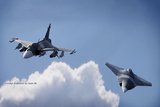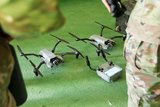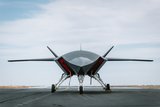Technodinamika has received a patent from the Russian government for the Juncker-DG-250 ‘smart’ cargo parachute system.
Flight tests of the Juncker-DG-250 system are in progress, Technodinamika’s parent company Rostec announced on 10 February.
The GPS/GLONASS-guided parachute comprises a landing platform, controlled ram-air canopy and automated guidance equipment. It can be deployed from an altitude of 26,200ft with a payload of up to 250kg and the landing error does not exceed 100m, said Rostec executive director Oleg Yevtushenko.
Contact with the ground is enabled via a digital communication channel with ground control equipment. Rostec added that multiple Juncker-DG-250s can be dropped at once, with a lead parachute guiding the others downwards.
Yevtushenko added that Technodinamika has obtained a patent for an ‘all-purpose parachute cargo harness which, if need be, can help increase the payload of any parachute system to 500kg. This will make cargo delivery much easier’.





















